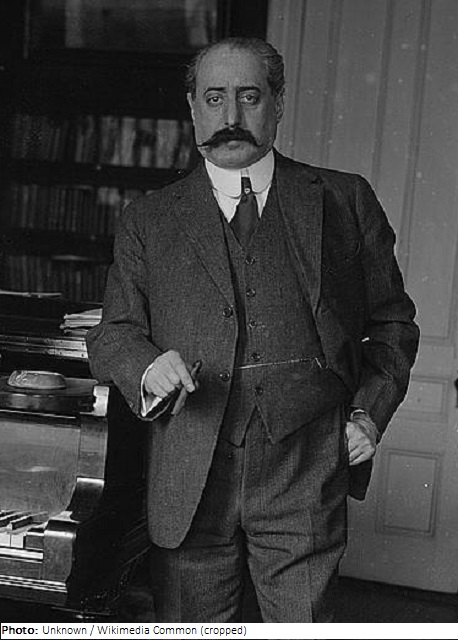
| Roles | Referee |
|---|---|
| Sex | Male |
| Full name | Rubin•Goldmark |
| Used name | Rubin•Goldmark |
| Born | 15 August 1872 in New York, New York (USA) |
| Died | 6 March 1936 (aged 63 years 6 months 22 days) in New York, New York (USA) |
| NOC |  United States United States |
The American composer and teacher of Jewish descent, Rubin Goldmark, was the nephew of the Hungarian composer Károly “Karl” Goldmark (1830-1915). After taking piano lessons at the City College in New York, Rubin first studied piano and composition at the Wien (Vienna) Conservatory. After only two years, he returned to New York and taught piano and music theory at the National Conservatory in New York from 1891-93. In parallel, he continued to study piano and composition, including with Antonín Dvořák (1841-1904).
Goldmark later taught at the Colorado Springs College Conservatory (1895-1901) hoping to improve his poor health. In 1902, he returned to New York and for the next 20 years gave private lessons in piano and theory. In 1924 he was appointed head of the composition department at the Juilliard School in New York and remained there until his death. Today, therefore, he is best known as a teacher of important composers, including Aaron Copland (1900-1990) and George Gershwin (1898-1937). Goldmark was also active in promoting musical associations, for instance, as founder and president (1907-10) of the “The Bohemians”.
Although a frequently performed composer in his day, Goldmark’s works are rarely performed today. His Piano Quartet (1909) won the Paderewski Prize. His nationalism was reflected in titles such as Hiawatha and The Call of the Plains. However, even during his lifetime, his music was considered by many to be rather old-fashioned.
| Games | Sport (Discipline) / Event | NOC / Team | Phase | Unit | Role | As | |
|---|---|---|---|---|---|---|---|
| 1932 Summer Olympics | Art Competitions |  USA USA |
Rubin Goldmark | ||||
| Music, Open (Olympic) | Final Standings | Judge |